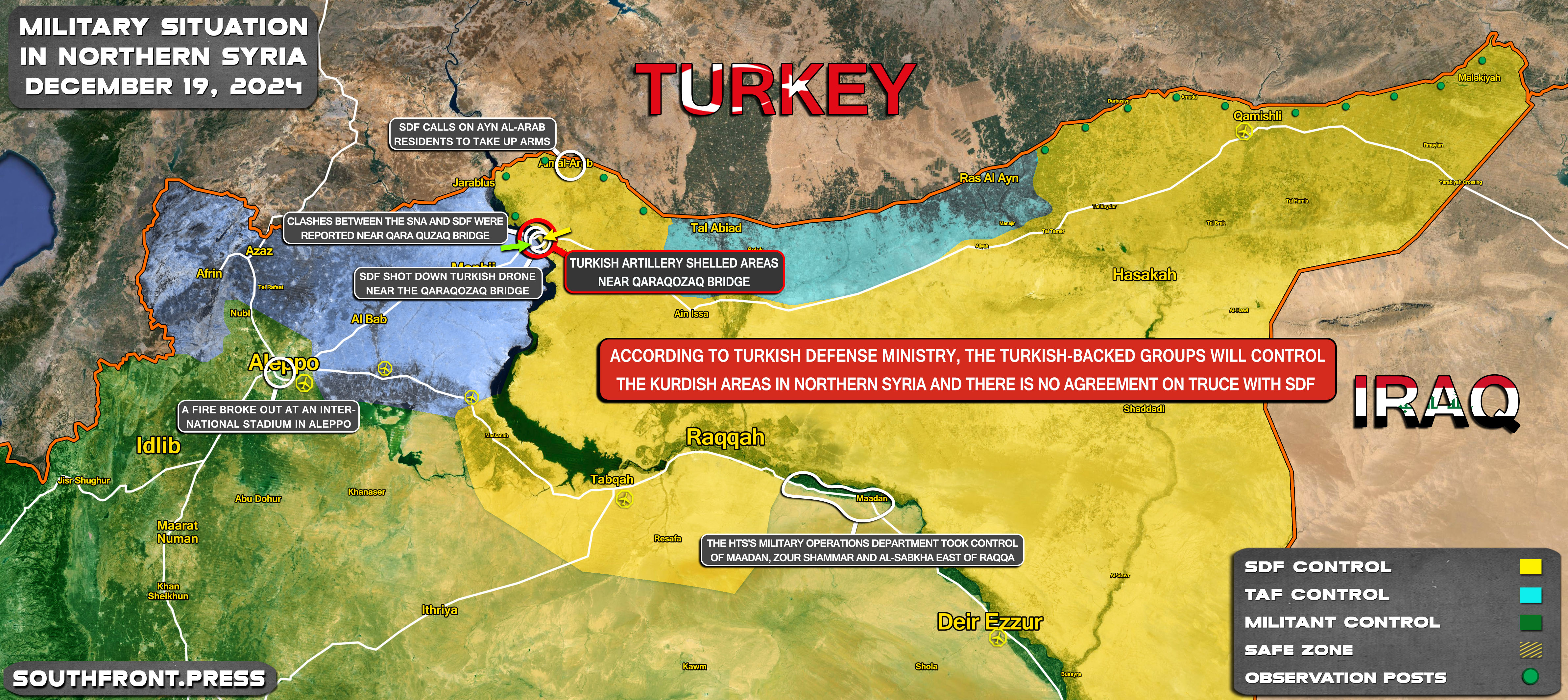Last week, a four-day ceasefire was reached between Turkey and the US-backed Kurdish SDF to allow the SDF to withdraw from the contested city of Manbij. That ceasefire expired Monday, though the US State Department announced Tuesday that it had reached a deal with Turkey to extend it until the end of this week.
Given the amount of fighting Wednesday, something didn’t add up with that story. Turkish officials are now offering a clarification that there never was any extension of the ceasefire in the first place. They said State Department spokesman Matthew Miller must’ve had a “slip of the tongue” to suggest otherwise.
On top of that, Turkish military officials said it was “out of the question” for Turkey to have talks with the SDF, because they consider them a terrorist organization. They further said that the offensive against the Kurds will continue until they are fully disarmed.
That, it seems, explains why the fighting between Turkey and their allies in the Syrian National Army (SNA) and the SDF never really stopped earlier this week. The SDF’s Manbij Military Council and SNA factions continue to clash around the area, and there have been reports of artillery strikes in the area from both sides.
21 Turkish-backed fighters were killed Wednesday, and a number of SDF fighters as well, though the exact number was not disclosed. There are some more casualties today, though again the exact number is not readily available. At least two civilians, including a five-year-old boy, were killed when an artillery shell hit their home in Abu Qalqal.
Turkey has been providing air support for the SNA attacks on the Kurds. Turkish drones have also carried out multiple attacks against targets in the city of Kobani. Those attacks included a strike on Kobani FM, a Kurdish-run radio station.
The SDF issued a statement Thursday accusing Turkey and “their mercenaries” of escalating their offensive. They said they’d repelled the attack around Tishreen Dam, south of Kobani, but that Turkish reinforcements are incoming.
The statement called on the global community to take a firmer stand against the Turkish escalation, and also called on civilians in Kobani to take up arms to defend their city against the Turkish forces. They said taking the region would be “no picnic” for an invading force.
This is shaping up to be a potentially major regional issue. Some in Israel are keen to back the SDF to prevent Turkey from having too much influence in post-Assad Syria. The US also is a close ally to the SDF, though President Trump notably abandoned support for the SDF in 2019 when Turkey was launching a separate offensive against them.
The recent regime change in Syria is opening up an opportunity for Turkey to make further moves to tamp down Kurdish autonomy in the northeast. The new government, dominated by the Islamist Hayat Tahrir al-Sham (HTS) appears to feel they owe a debt to Turkey for supporting their offensive, and has spoken out against Kurdish separatist urges. But the HTS is going to have to balance that with their effort to remain palatable to the rest of the West, making this a potential complication for them.



